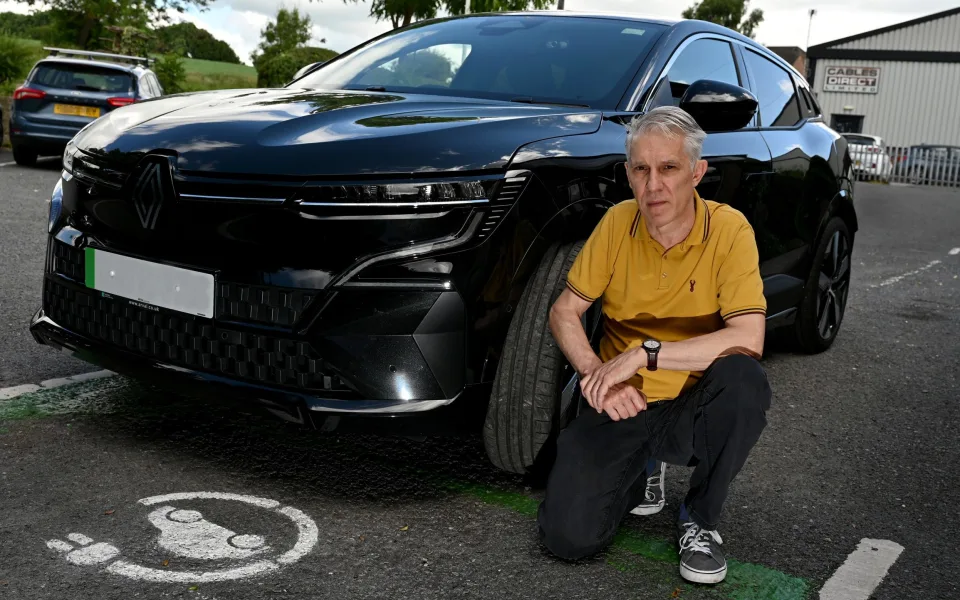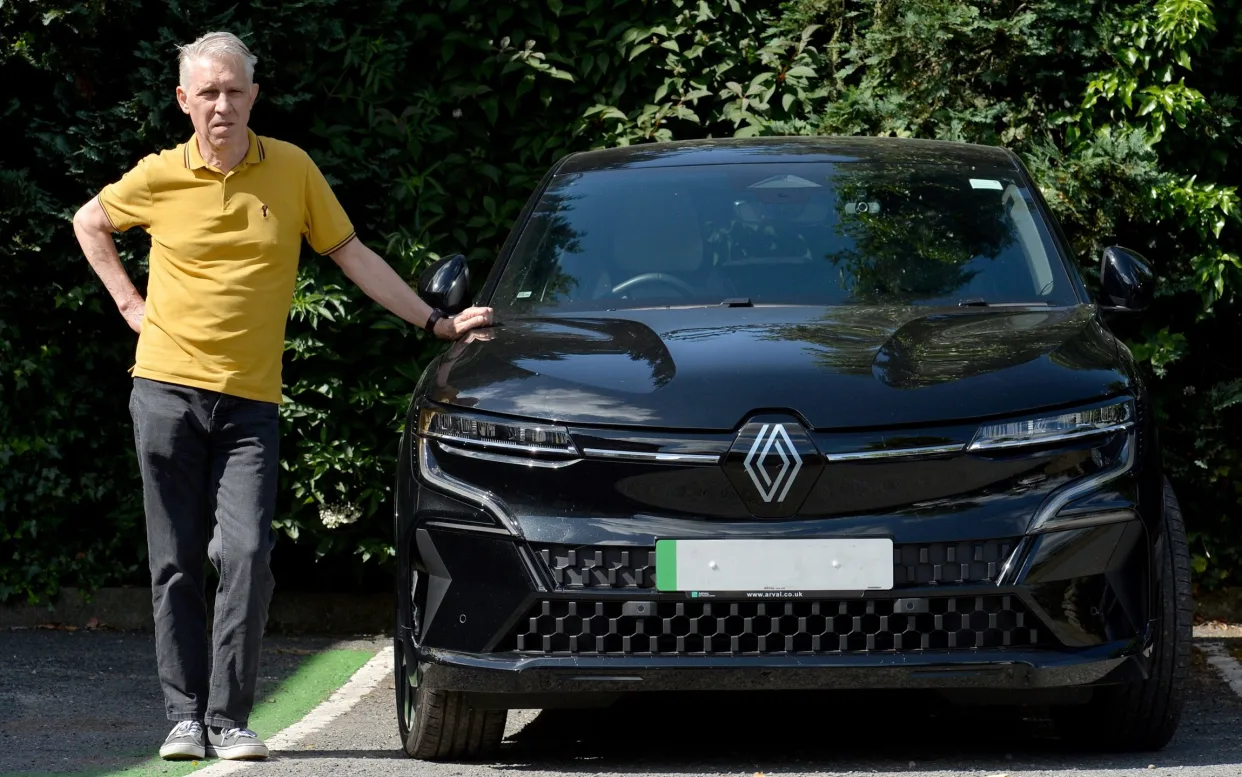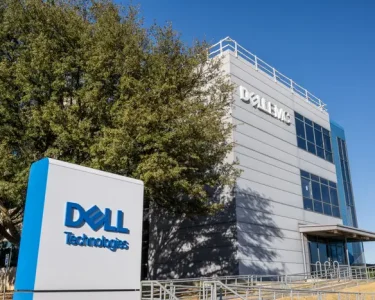Ray Bestwick’s Disheartening Electric Car Journey
Ray Bestwick, a 62-year-old engineer from Derbyshire, hoped for hassle-free motoring when he purchased his electric car last May. However, after eight trips to the garage in just over a year, he is eager to end his “soul-destroying” experience.
Ray’s Renault Megane E-Tech has been a constant source of frustration, and he is not alone. Many electric vehicle (EV) owners share similar stories. The main reasons for this dissatisfaction are fears over limited range and insufficient charging infrastructure.

Ray’s Renault was advertised with a range of 280 miles but rarely exceeded 200, and he often found himself struggling to get even 160 miles. Despite visiting three different Renault garages, he was repeatedly told that the issue was due to his driving style. “I’m 62 years old and drive in eco mode 90% of the time. I’m after economy, not speed,” Ray explained, emphasizing that the fault was not his.
Read More Article:
A recent What Car magazine investigation revealed that electric cars often have up to a third less range than advertised, highlighting a significant gap between official tests and real-world usage. Ray expressed his frustration, saying, “I’ve considered not paying the monthly lease, but I don’t want any trouble. I’m waiting until next May to ditch it.”
Ray is relieved he did not buy the car outright, noting that its value has depreciated rapidly. “It would have cost £38,000 then, but now it’s worth about £22,000,” he said. Research from Auto Trader found that a £50,000 electric car could lose £24,000 in value over three years, compared to a £17,000 loss for a similarly priced petrol car.
Ray concluded, “I’m all for technology, but I’m going back to petrol or maybe a hybrid. This has been the worst car experience of my life.”
Renault responded to Ray’s concerns, attributing the lack of range to his driving style and car setup. They suggested techniques such as using regenerative braking, moderating speed, and managing heating or air conditioning to boost range. However, for Nigel Pullen, an electric Skoda Enyaq owner, the industry needs to double range capabilities to gain widespread acceptance in the UK.
Nigel shared his experience: “For local use, it’s fine, but for longer journeys, forget it. We planned to travel from Cornwall to Derbyshire with a 330-mile range, but reality offered only about 250 miles. We’re switching to a petrol-hybrid when the lease ends.”
Data from the Society of Motor Manufacturers and Traders (SMMT) shows that EV adoption is driven by fleet market demand, while public interest is waning. Labour plans to expedite the ban on new petrol car sales from 2035 to 2030, despite concerns about infrastructure and range anxiety.
Telegraph readers shared mixed reactions to EVs. Jane Gregory, a Tesla 3 owner, plans to switch to petrol or hybrid due to range anxiety and charging inconveniences. Cliff Nicholls and Chris Chambers highlighted the need for significant infrastructure investments to support mass EV adoption.
Conversely, Gareth Probert praised the affordability of charging his Tesla, and Eric Moore appreciated the immunity to fuel shortages. Neal Preshner, however, criticized the high cost of public charging compared to home rates.
The environmental benefits of EVs are also debated. Rupert E Beehsley questioned the green credentials of imported EVs, while Barbara Manick defended their lower emissions and enjoyable driving experience.
In conclusion, while some find EVs a pleasure to drive, many, like Ray Bestwick, have found them to be the worst car experience due to range issues and infrastructure challenges.





